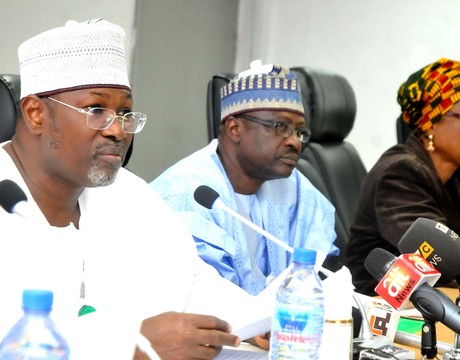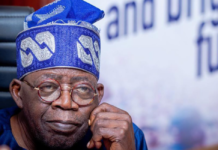 The Independent National Electoral Commission (INEC) has again defended its choice of February dates for the 2015 general elections.
The Independent National Electoral Commission (INEC) has again defended its choice of February dates for the 2015 general elections.
The commission explained that the dates were arrived at to give ample time for litigations, which might arise as a result of the outcome of the polls; a development he noted had become inevitable in Nigeria.
It also warned political parties on the need to adhere to timelines for campaign.
INEC Chairman, Prof. Attahiru Jega, who spoke at the “National Broadcasting Commission (NBC)/INEC Forum on Broadcast media coverage of election: A preamble to 2015”, also used the occasion to debunk the reports making the rounds that the commission provided two different voters’ lists for the November 16 governorship elections in Anambra State.
He further stated that the voters’ lists for Ekiti State will be made available on Wednesday as a prelude to the commencement of the Continuous Voters Registration (CVR).
His words: “Let me use the opportunity of this forum to restate that INEC’s choice of those dates was informed by purely rational and logical considerations.
“We have scheduled the elections for February 2015 to allow ample time for litigations, which are inevitable in our Nigerian context, before the commencement of new tenures of May 29, 2015. The allegation that INEC changed the sequence of elections in 2015, when compared with 2011, is simply not true. In 2011, we had the National Assembly election first; then, the Presidential election; and lastly, the state elections into Governorship and State Assembly seats”.
The INEC boss also responded to the call from some quarters for one-day elections, saying the task is daunting for the country.
He said, “There have been calls from some quarters that Nigeria should conduct one-day elections, as it is the practice in some other countries. Convinced in INEC that the challenges of holding one-day elections are too daunting for our democracy at this time, all we have done is to combine the national elections – namely for National Assembly seats and presidential – on one day; and states elections – for governorship offices and states Assembly seats – on another. This, for us, is rational and defensible things to do. But we also know that partisan criticism of whatever move we make is inevitable. So, we will just stay focused”.




